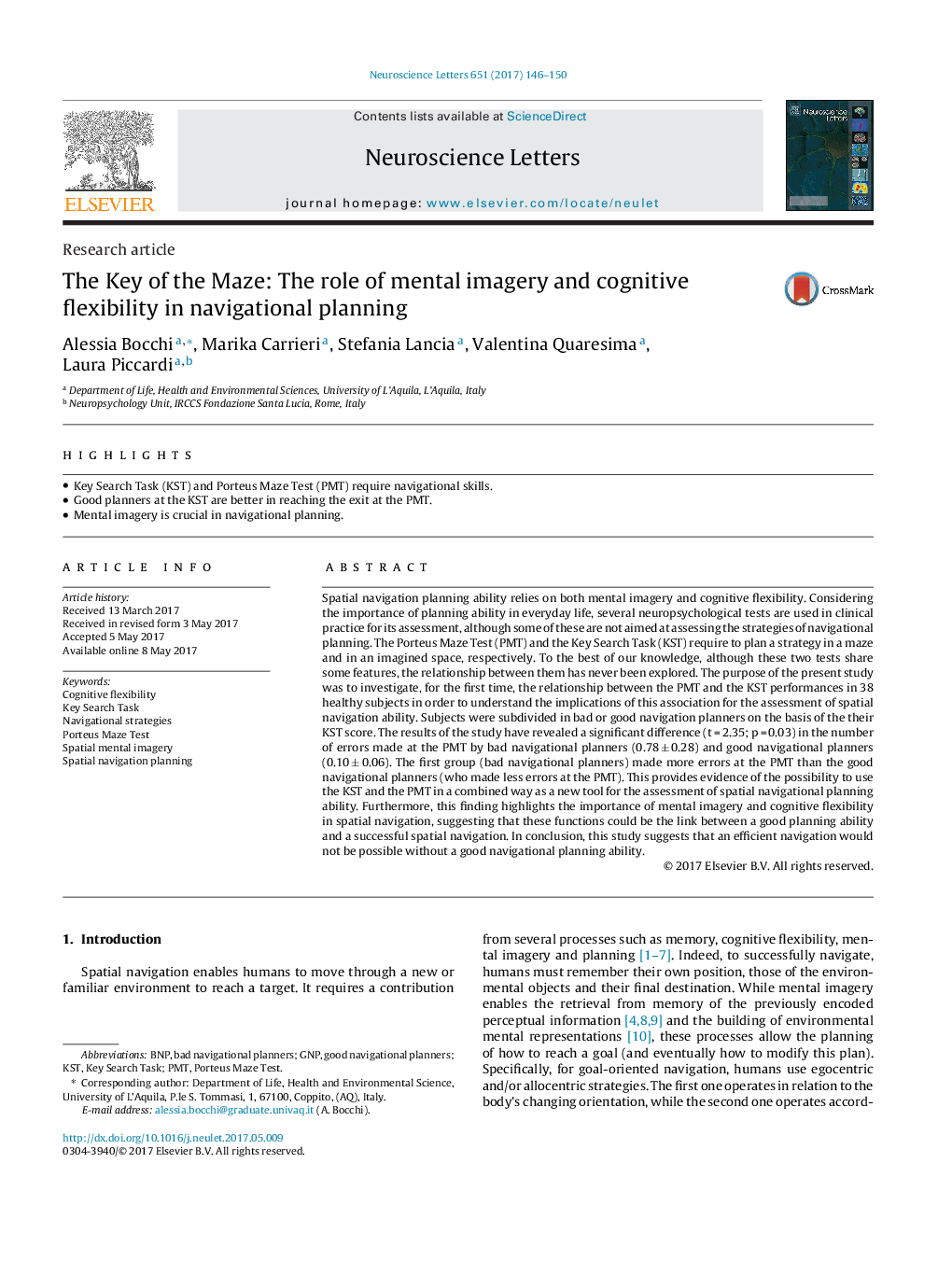| کد مقاله | کد نشریه | سال انتشار | مقاله انگلیسی | نسخه تمام متن |
|---|---|---|---|---|
| 5738212 | 1615048 | 2017 | 5 صفحه PDF | دانلود رایگان |
- Key Search Task (KST) and Porteus Maze Test (PMT) require navigational skills.
- Good planners at the KST are better in reaching the exit at the PMT.
- Mental imagery is crucial in navigational planning.
Spatial navigation planning ability relies on both mental imagery and cognitive flexibility. Considering the importance of planning ability in everyday life, several neuropsychological tests are used in clinical practice for its assessment, although some of these are not aimed at assessing the strategies of navigational planning. The Porteus Maze Test (PMT) and the Key Search Task (KST) require to plan a strategy in a maze and in an imagined space, respectively. To the best of our knowledge, although these two tests share some features, the relationship between them has never been explored. The purpose of the present study was to investigate, for the first time, the relationship between the PMT and the KST performances in 38 healthy subjects in order to understand the implications of this association for the assessment of spatial navigation ability. Subjects were subdivided in bad or good navigation planners on the basis of the their KST score. The results of the study have revealed a significant difference (t = 2.35; p = 0.03) in the number of errors made at the PMT by bad navigational planners (0.78 ± 0.28) and good navigational planners (0.10 ± 0.06). The first group (bad navigational planners) made more errors at the PMT than the good navigational planners (who made less errors at the PMT). This provides evidence of the possibility to use the KST and the PMT in a combined way as a new tool for the assessment of spatial navigational planning ability. Furthermore, this finding highlights the importance of mental imagery and cognitive flexibility in spatial navigation, suggesting that these functions could be the link between a good planning ability and a successful spatial navigation. In conclusion, this study suggests that an efficient navigation would not be possible without a good navigational planning ability.
Journal: Neuroscience Letters - Volume 651, 9 June 2017, Pages 146-150
